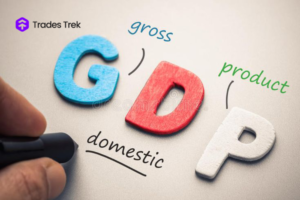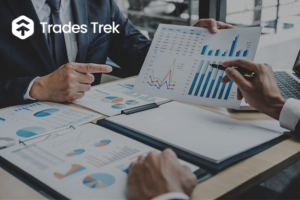Today, most of us have various objectives we hope to accomplish in life. And we take the required actions to make sure we achieve those objectives. We receive reasonable profits from our careful financial planning, allowing us to tick off goals one by one on our list of aspirations. Investment is just one of the many principles of long-term financial planning. We invest our money in various financial instruments to fend off inflation and create capital, hoping our investment would increase over time like a well-watered plant.
The investment referred to in this article is the stock market. The stock market continues to offer a high return even though there are many investment securities one can engage in, which attracts many investors. But because of its volatility and unpredictable nature, the stock market presents a challenge for most investors due to its level of risk. Many investors are left wondering what factors affect the price of a single share stock in light of this.
How can a stock’s price rise dramatically one minute and drop drastically the next? The primary goal of this article is to provide an answer to that query. Read on to find out the factors that influence the price of a single share stock.
- The Factor of Demand and Supply
The most fundamental factor affecting the price of a single share of stock is supply and demand. This factor is comparable to a scarce marketable good. Since there is greater demand than supply for the goods, the product price automatically increases.
Stock prices are influenced when there is an imbalance between supply and demand. Simply put, this means that when a stock’s demand outpaces its collection, there are more buyers than sellers, driving up the stock’s price due to buyers’ increased willingness to pay. On the other hand, if there are more sellers than buyers, it indicates that there is a small percentage of investors who are willing to purchase the stock. As a result, the stock price declines, signaling an effort by sellers to leave the market.
- The Press Factor
It is impossible to overstate the power of the media. The price of a stock can sometimes be affected by the news. This factor could be information of a generic kind like:
- The most recent employment data.
- News articles about profits and earnings.
- Future anticipated income
- A policy adopted by the government that supports a specific industry.
- Launching a new product
- A managerial change.
- Either scandals or accounting errors.
- Dividend announcement.
The media influence investors’ decisions to enter or exit a particular trade since they cannot foresee the stock market. Investors typically sell equities in response to bad news. The values of many, if not most, equities fall due to selling pressure brought on by negative information. On the other hand, joyous news typically prompts people to purchase equities, contributing to rising stock prices.
Investors react significantly to the unexpected since it frequently determines whether the news boosts or saddens investor confidence. The impact on share prices increases with the size of the news report. Share prices don’t typically change all that much when buyers have already expected something in the news, such as an announcement on interest rates. That’s because the news occurrence is taken into account in advance. Furthermore, a company’s reputation can be boosted or ruined by what is said in the media. If the news is positive, it will increase sales; if the information is negative, it will have the opposite effect, automatically affecting share prices.
- The Economy Performance
The economy’s performance influences the stock market’s success in many ways. If the economy is favorable or it looks like it will expand, investors are more likely to buy more stock, leading to a rise in stock price. Investors may reduce their buying or start selling if the economic outlook is uncertain. The economic climate of corporations is one huge factor that causes fluctuations in investors’ sentiment and ultimately induces share price behavior.
The stock market and economic growth typically go hand in hand. As a result, when the stock market is doing well, the economy is naturally expanding. There are several ways to gauge economic growth, but one of the most common is watching the gross domestic product (GDP).
The gross domestic product (GDP) measures a nation’s economic output. GDP is a gauge of an economy’s total production of goods and services during a given year. For instance, in the third quarter of 2022, Nigeria’s GDP reached 45.3 trillion nairas (NGN), or over 101 billion USD, impacting stock prices.
GDP is significant to the stock market since it measures the economy’s health. A rise in GDP (a positive growth rate) from one period to the next would indicate to a logical stock market investor that businesses are, on the whole, doing well.
The business’s profitability in the upcoming months/years becomes doubtful if the economy is shrinking (GDP is declining). Therefore, when GDP falls, investors tend to avoid the market or sell their holdings, which results in a commensurate decline in the stock markets. On the other hand, if the GDP rises, investors will be more confident in the company’s earnings and future growth, leading them to purchase more stock and boost the stock market.
- Investor’s Sentiments
Investor perceptions of a given asset impact the general price trend. Market sentiment analysis is helpful in the stock market since it can reveal investors’ perceptions of specific stocks or assets.
When prices rise, the market is in a positive mood; when prices decline, it is pessimistic. The costs of securities, such as stock, are expected to rise when investor confidence improves. Future capital gains and a steady dividend income will result from this. It is sometimes called herd behavior as a result of the effect. However, herd instinct is only occasionally a wise approach to making investments.
- Company’s Financial Performance
Investors are more upbeat and willing to invest their money when a company’s earnings have increased significantly, affecting the stocks’ price. Studies have revealed a strong correlation between a company’s financial health and its share price.
The better the company’s financial performance, the more investors are interested and need to buy stock, which leads to higher share prices. The company’s financial performance can affect share prices in stock trading; investors are always concerned about the growth in the company’s financial performance because it affects stock price growth and fall.
Bottom Line
Understanding the factors influencing share price fluctuations is crucial. These factors will assist you in making wise asset allocation decisions that will produce higher returns and reduce the associated risks.
Additionally, having a better grasp of share price variations will enable you to make intelligent investing decisions if you are aware of the factors that influence a stock’s price.




